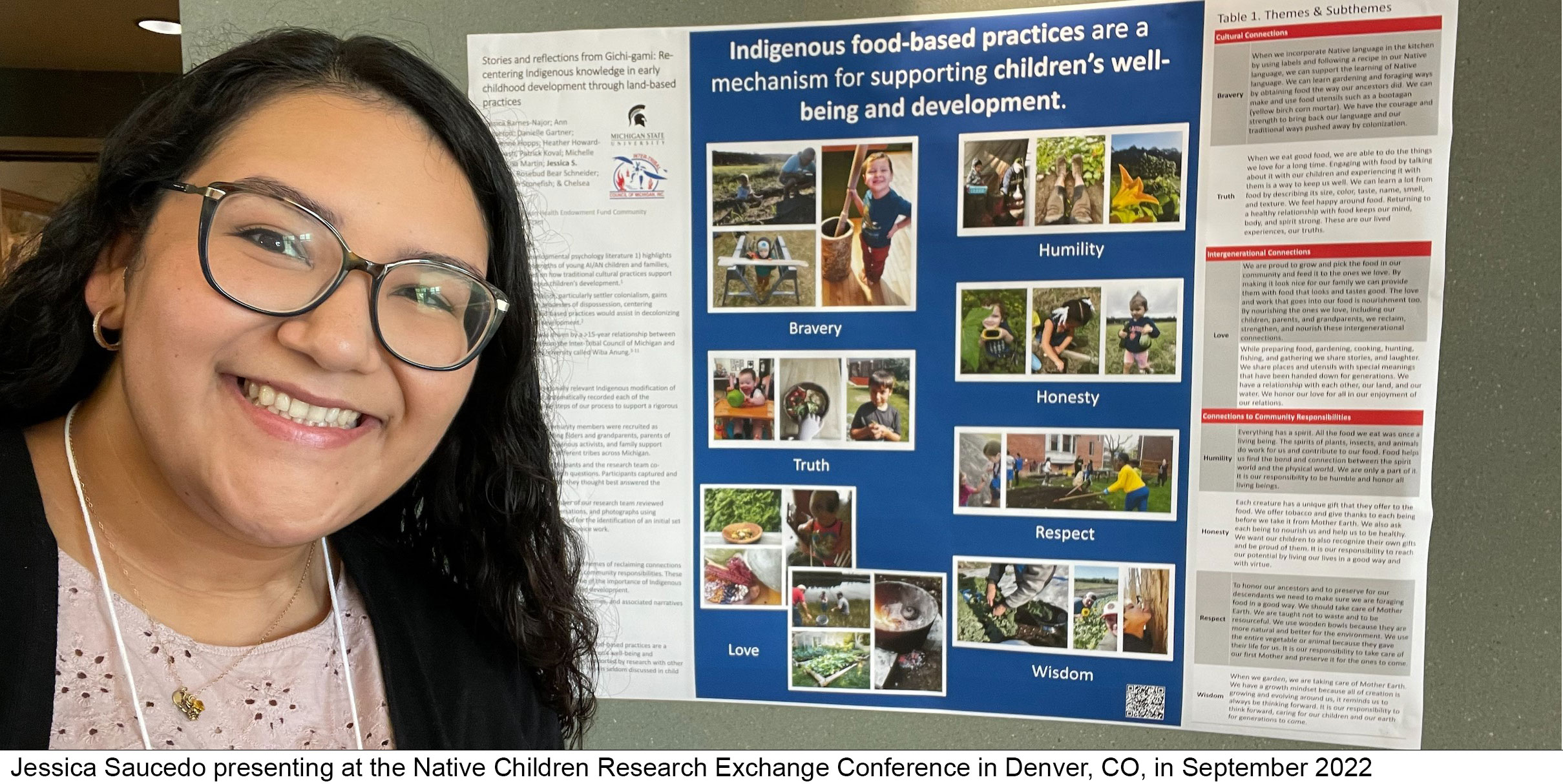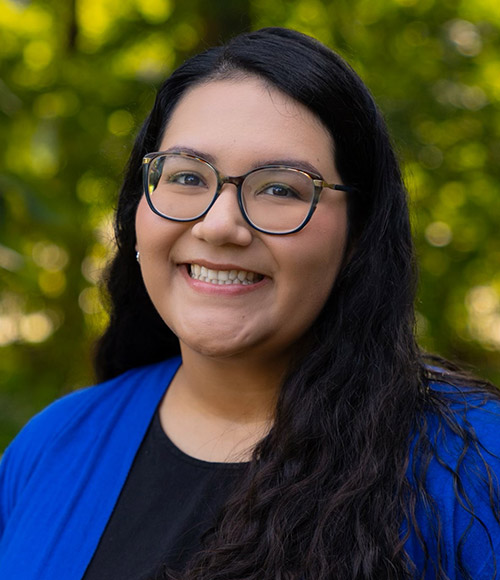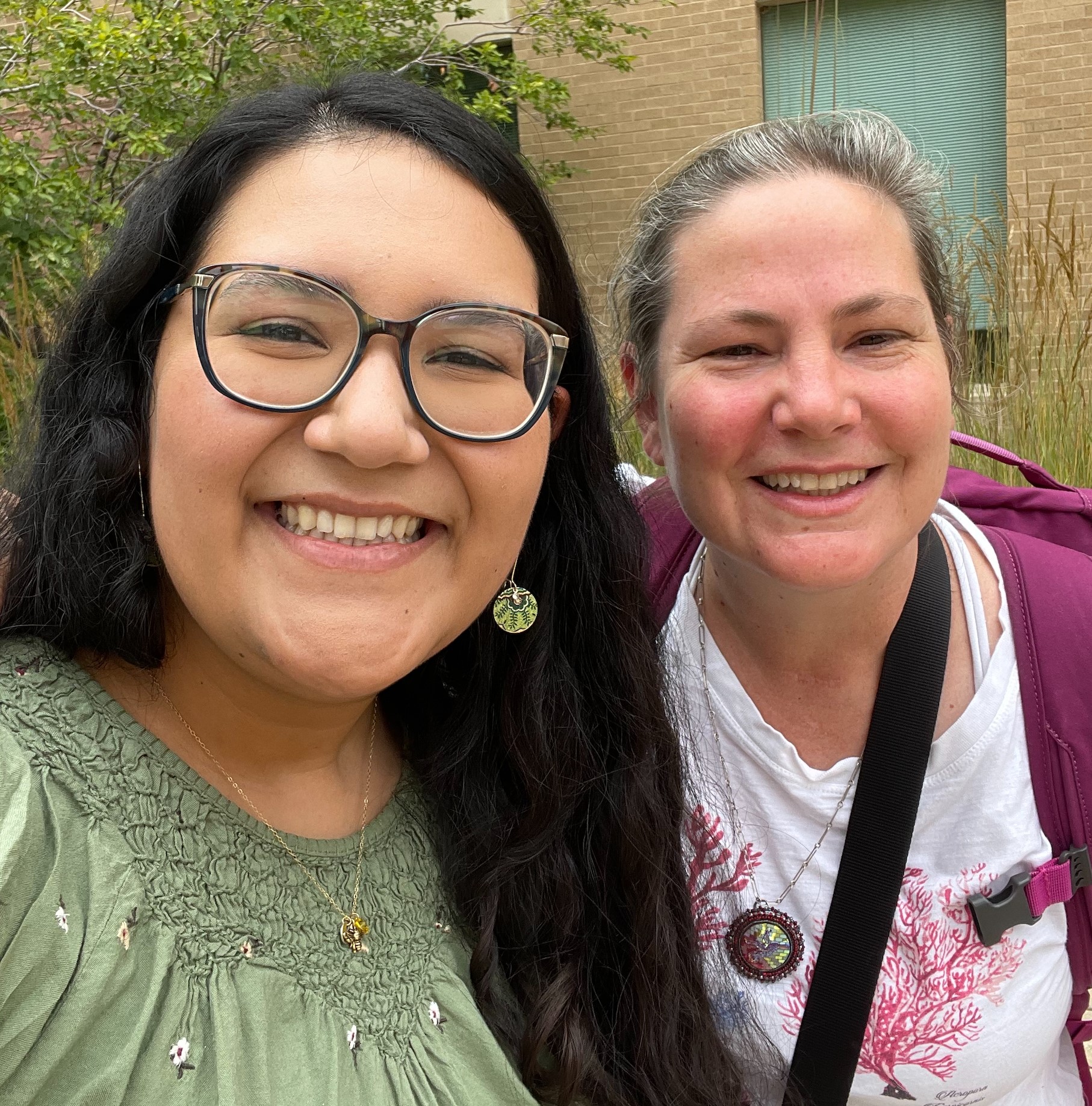Together Towards Well-Being: Jessica Saucedo's Journey as a Community Psychologist
August 1, 2023 - Shelly DeJong

MSU Psychology graduate student, Jessica Saucedo, is a community psychologist that isn’t afraid to look at the larger systems that an individual lives in, including the systems she finds herself in. As a graduate student in the Ecological-Community psychology program, Saucedo is on a transformative journey that intertwines personal growth, health and well-being, and collaborative research endeavors. Her commitment to addressing holistic health in Native communities and working as a collaborative academic within those communities has propelled her into meaningful projects and partnerships.
As an undergraduate at Cal Poly Pomona, Saucedo’s mentor suggested that she look into community psychology since she was drawn to thinking about how environments shape a person. After looking into the field, she realized it aligned with a lot of values that she had already identified for herself.
“The field allows for collaboration, it highly centers on social justice, and it really thinks about the systems all around us,” said Saucedo. “I love that community psychology can be applied in any context. And it is collaborative which is important to me.”
 When Saucedo was in high school, Saucedo realized the profound loss of not knowing her indigenous roots, culture, and history. This awareness became a driving force behind her exploration of community psychology. Intrigued by the field's holistic perspective, which resonates with Native cultures' emphasis on balance across mental, spiritual, and physical aspects, Saucedo embarked on a journey to help make sure that other people don’t lose the connection to their own cultures.
When Saucedo was in high school, Saucedo realized the profound loss of not knowing her indigenous roots, culture, and history. This awareness became a driving force behind her exploration of community psychology. Intrigued by the field's holistic perspective, which resonates with Native cultures' emphasis on balance across mental, spiritual, and physical aspects, Saucedo embarked on a journey to help make sure that other people don’t lose the connection to their own cultures.
Holistic Health and Well-Being in Native Communities
As a new graduate student in 2018, Saucedo struggled to find her place. As someone curious about identity, health, Native communities, the environment, and food, Saucedo wanted to find a path that would bring those topics together in a way that made sense.
Saucedo met Jessica Barnes-Najor, the director for community partnerships in the Office for Public Engagement and Scholarship, and they hit it off right away. For years, Barnes-Najor has formed important partnerships with Native communities. She invited Saucedo to analyze a dataset that she and her partners had collected called the American Indian/Alaska Native Family and Children Experiences Survey. This dataset focused on Tribal Head Start programs that served 2- to 5-year-old children, and they were interested to see if Native language and culture supported health outcomes within the Native American children. Specifically, Saucedo looked to see how food insecurity affected obesity rates in two- and four-year-old children in the Native communities. She also wanted to see how Native culture and language moderated that relationship.
Through this project, Saucedo’s partners realized that these ways of measuring health or income didn’t align with how Indigenous communities worked. For example, the health outcome was dependent on BMI (Body Mass Index) which Saucedo said isn’t a comprehensive predictor of health. Food insecurity was dependent on income, which didn’t represent how Native communities support those who may be under the poverty line.
“Indigenous peoples don’t just look at individual health, it’s all about community. If their community is not healthy, then they are not healthy. That’s how they would measure health,” said Saucedo. “It’s all about the relationships that we’re all intertwined with. It’s so foundational, but we as researchers often forget that.”

“I really wanted to learn how these communities would define health,” said Saucedo. “We found that if we support the food sovereignty movement, it will help the communities on many different levels including health and economically.”
This interest aligned with the Inter-Tribal Council of Michigan’s goal to add health education lessons to their current Family Spirit curriculum that was being used for Tribal Home Visiting, a program that was developed and designed to support the well-being of Native families and children. With funding from a Michigan Health Endowment Fund grant, Saucedo and her partners created supplemental materials for the Michigan Tribal Home Visiting curriculum (see the lesson 14 tab). These materials included stories, recipes, pictures, and quotes that came directly from the PhotoVoice participants. They also developed them in Anishinaabemowin, in both Ojibwe and Potawatomi dialects.
“We didn’t even realize the impact that this could have on families. We just kind of did it and now we’re realizing that our actions are making a bigger impact than we could have ever thought,” said Saucedo. “Even though it is designed for three- to five-year-olds, it really can be applied to different generations through the stories that are culturally rounded, through recipes, through the pronunciation guides.”
While they are helping families at an individual level, Saucedo still recognizes that the systems that these communities live in still need to be addressed. Saucedo notes that their curriculum encourages families to use various traditional foods, such as wild rice, while understanding the intricacies of food sovereignty. Wild rice is more expensive, hard to harvest in traditional ways, and is scarce in many communities.
Recently, members of the Wiba Anung research collaboration, which Saucedo is a part of, shared their research on the Nutrire CoLab podcast and a virtual Learning Circle on Indigenous Food Sovereignty in Early Childhood. Learn more about Indigenous Food Sovereignty and the work that Saucedo and the team are doing by listening here or watching here.
Looking Ahead
Saucedo is currently in the comprehensive exam stage of her Ph.D. She’s conducting a systematized review to explore how engaging in Native culture and language supports the physical, cognitive, emotional, and linguistic development of three- to five-year-old children.
She’s also keeping in mind the lessons she’s learned from the Native communities that she’s been working with.
“I’m learning how powerful it can be to reconnect with culture and language,” said Saucedo. “More than anything, I hope that my work can continue to help myself and others heal from the intergenerational trauma that we face as a community.”
Through the Wiba Anung partnership, Saucedo has learned the importance of being a good academic partner and a good community partner. She aspires to continue her work in building community partnerships, teaching others the art of genuine research collaboration, and promoting the integration of indigenous perspectives into academic settings.
All the while, she is grateful for finding community psychology which allows her to think about these systems, and for her mentor, Jessica Barnes-Najor, who has trusted her with the partnerships that she has formed and has helped her grow in her confidence and ability to be a collaborative researcher.

